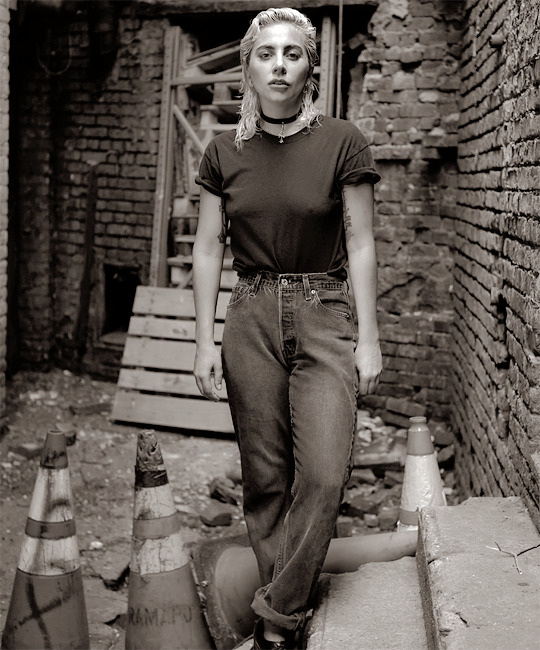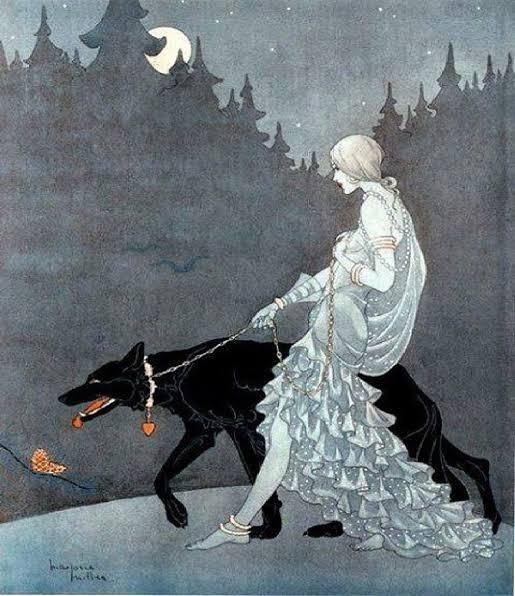Text
2 minute read
Children conceived through rape will be officially classified as victims of crime under new government plans.
The changes, due to be made in the forthcoming Victims Bill, will entitle those conceived as a result of rape access to information about their case.
The legal changes will also make it easier for victims to receive support from police and the criminal justice system "whenever they may need it".
The law will cover all sexual offences which can result in pregnancy.
England and Wales are understood to be among the first nations in the world to officially confer victim status to children born of rape.
Announcing the plans, Justice Secretary Dominic Raab said: "No child born in these horrific circumstances should be left to suffer alone, which is why we must ensure they can access vital support whenever they may need it.
"Our Victims Bill will amplify their voices and boost support for all victims at every stage of the justice system."
The Commons Justice Committee recommended the amendments to the draft Bill, following calls from campaign groups to change the law.
The statutory 'Victims' Code' sets out the rights available to all victims who report a criminal offence to the police.
The cross-party Justice Select Committee found individuals who believe they were born as a result of rape currently find it "unnecessarily difficult" to get help, including information about their case, because they are not defined by the Code as victims - and guidance is unclear.
The change in law will entitle them to make a complaint to the police, in their own right - and to receive information and access support in the same way as any other victim of crime.
Under the ministry's plans, that help could be accessed at any point in their lives, to address issues including alcohol or drug dependency, education and housing benefit.
Research by academics for the Centre for Women's Justice (CWJ), who lobbied for the change, estimate that more than 3,000 children may have been conceived after rape in England and Wales in 2021 alone.
The change, dubbed 'Daisy's Law' by the CWJ, is named after a campaigner who born as a result of a historic rape in the 1970s.
The CWJ said there was evidence that both mothers and children who are rape victims, will "often suffer from attachment difficulties and poor mental health, which in turn can profoundly negatively affect a child's development and educational outcomes, as well as his/her wellbeing in adulthood".
2K notes
·
View notes
Text
amid rumors of oj’s death (🦀🎶🦀) I am moved to share andrea dworkin’s piece about nicole.
“You won’t ever know the worst that happened to Nicole Brown Simpson in her marriage, because she is dead and cannot tell you. And if she were alive, remember, you wouldn’t believe her.”
2K notes
·
View notes
Text
i recently stopped working in abortion care (i want to write about that decision, but not right now) but i was going through my old drafts and i wanted to expand on this:
something i’ve been thinking about a lot, especially in relation to my job, is the relationship between women’s quality of life, feminist consciousness raising, practical feminist action, and the language used to describe male violence (and the culture of, etc) that can sometimes revictimize and alienate women who have experienced it. by this i mean: when i have a patient who discloses to me that her unwanted pregnancy is the result of her partner slipping off the condom, does it actually improve her quality of life or increase her safety if i insist that we call her experience rape by deception or assault? would she perhaps be better served if i choose to mirror the language she uses to describe it, even if i disagree with how she wants to name that experience?
in my experience working with women who are often subjected to what i might term “casual” sexual violence (things that are often perceived as innocuous or common by many women, like condom tampering or emotional manipulation to receive sex), many of those women feel resistant or even defensive when other people call those experiences rape, or assault, or even harm.
in my experience, many women will acknowledge how their experiences affect them personally (how it made them feel, what it cost them, how it has made them view their partner) but they will not politicize their experience by naming it as and contextualizing it within a culture of male violence. this is perhaps not a feminist approach. however, in my experience, most women will do whatever they can— including creating linguistic loopholes through which they can obfuscate the reality of male violence in their lives— to survive their experiences in the moment. women will sometimes lie to themselves and others in order to keep living. while it is perhaps not the most sustainable survival tactic, i think that feminists should be cautious of dismissing this approach as strictly anti-feminist and solely patriarchy-serving. women have an incredible talent for prioritizing their own survival through the trauma at hand (the traumas that often follow as consequences of male violence: having an abortion, needing housing assistance, filing for divorce, seeking mutual aid, navigating healthcare as an abused woman). just because that ability to survive and cope sometimes comes at the cost of the recognition of the role that patriarchy (and its iterations, such as male violence) plays in their circumstances does not entirely negate the net benefit to women’s lives of being able to continue functioning in day-to-day life, being able to make clear-headed decisions about the impacts that materially affect them in the aftermath of patriarchy (can i actually stay pregnant? do i want to?), and, in some cases, moving through life without the psychological experience of having been victimized.
i think that as feminists, especially when we work directly with women impacted by patriarchy in real and painful ways, in the aftermath of that impact, there is an impulse to lead the horse to water and make it drink. there is an impulse to make the woman acknowledge that this isn’t her fault by pushing her to name male violence. there is an impulse to lead by example, to name it for her. i have certainly felt this impulse in abortion care. when a woman begins to cry, explaining that her partner knows she cannot get pregnant because of a life-threatening medical condition yet refused to wear a condom because it doesn’t “feel as good” for him, my own anger at her situation spurs that impulse. yet my experience has shown me part of effectively aiding women in crisis is prioritizing her own feelings, emotions and outlook over my own. that is, in my opinion, a radically feminist act, and one that is perhaps the most effective when consciousness-raising.
when i told women like that, “That’s horrible! He assaulted you and put your life in danger!” I was, effectively, ending the conversation. I was closing dialogue by imposing my interpretation of her circumstances over her. now the woman may regret sharing her story with me, she may feel pressured to hide her situation in the future, she may feel pressured to defend her partner, or she may begin to recognize her own cognitive dissonance about her situation at a time when she is not mentally prepared to face it. my prioritization of my own beliefs about her experiences may, ultimately, make the experience of having her abortion a lifelong trauma because i have forced her to reckon with her experience of male sexual violence, my own judgement of her relationship at a time when she chose to be vulnerable, and the experience of having the abortion all at the same time.
by contrast, when i began telling women like that, “I’m really interested in how that’s impacted you. How do you feel at home with him? Have you been considering birth control because of this? How are you feeling about the decision you’re faced with because of your partner’s actions?” I am opening the dialogue by demonstrating my interest in her thoughts and feelings about her experience. when i was careful to mirror the other woman’s language about her experience, i was often able to collaborate with the woman to find her helpful and harm-reductive solutions to improve her quality of life. sometimes, that meant getting her a birth control method that her partner couldn’t detect. sometimes, that meant sending her home with a supply of Plan B. sometimes, that meant connecting her with a social worker and creating a plan to safely exit her relationship. sometimes, it meant sending her to a prenatal specialist because she wanted the pregnancy regardless of the risk. this approach is very hard— it’s frustrating, it’s infuriating, it’s suffocating. it’s not satisfying or cathartic. it’s especially difficult to take this approach when working with very young women and girls, when working with those who are not health literate, when working with those who are religious or socially conservative.
but that is the real, on the ground, hands in the mud feminist work. it requires me to acknowledge that i do not know better. my deep knowledge of feminist literature and my own personal convictions about patriarchy and feminism do not mean that i can teach a woman anything about her own life. i have to acknowledge that i don’t know better even when i do literally, objectively know better. part of doing feminist work with the general female populace is acknowledging that while my feminist framework can shape the way i approach women’s issues, i will never connect to women, gain their trust, build a relationship, or meaningfully support them while telling them how they should think and act in their lives. this framework is mostly useful for those engaging in real-life work with women but i encourage those of use engaging with random women online to also use this framework. for anyone interested in learning more about this approach to feminist work, i would strongly recommend “Decision Assessment and Counseling in Abortion Care” by Alissa Perrucci.
599 notes
·
View notes
Text
the only reason why ten year old girls are destroying stupidly overpriced products at sephora to make “skincare smoothies” is because they aren’t being given access to a yard with a variety of mud, sticks, rocks, puddles, and old ceramic planters to make potions in. the children yearn for the apothecary
72K notes
·
View notes
Text
Today is a very important day for women in France: the Parliament is gathering this afternoon in the palace of Versailles to vote on enshrining abortion into our Constitution. This would make it extremely difficult for abortion rights to be threatened by a change in governing party, as the Constitution is the central legal text our republic is based on.
The Parliament gathering is scheduled to start at 3.30pm CET with results expected at 6.30 CET. I'll be reblogging this post with updates throughout the day.
Should the vote pass (🤞🤞🤞🤞🤞🤞🤞) this would make France the first country in the world to explicitly protect abortion rights in their Constitution
1K notes
·
View notes
Photo

This quote from the women’s suffrage memorial in Knoxville is as prescient as ever given the current climate.
7K notes
·
View notes
Photo




1. After The Pale, The World Again
2. All Distances Are Insurmountable
3. Here We Go Mother On The Shipless Ocean
4. After The World, The Pale
Mia Novakova, Porch Collapse
11K notes
·
View notes
Text
I’m sure this has been said but it truly is insane how lefties say being too mean to actual violent racists and sexists is bad because it will further radicalize them and drive them to do violence but when it comes to “terfs” they have zero issue with threatening rape and murder non-stop to the point where the average woman is genuinely scared of non-anonymously acknowledging that sex-based discrimination exists
1K notes
·
View notes
Text
I don't think it's talked about enough how the knowledge of women's millennia-long subjugation under patriarchy feels so incredibly demeaning and what it does to young girls self esteem when when they learn about it in school. I remember being 12 or 13 in history class learning about the Romans and how women were considered property to be passed from their father to their husband and for the first time feeling this awful and disheartening sense of humiliation and embarrassment, especially sitting there among my male pupils, being told by the male history teacher over and over throughout every single historical period that we were second-class citizens. What it must do to a girl's self esteem on a subconscious level, how it then might affect everything you say and do, not even mentioning how the misogyny in their daily lives affects them. My heart kind of broke when I realised that
2K notes
·
View notes
Text
there’s this interesting tendency that especially young ppl have when it comes to art where they want to “consume” art by women, lgbt ppl, poc, to make themselves more feminist, anti-racist, etc, and then when they discover these artists have flaws too, that they aren’t perfect representatives of the social movement that’s being projected onto them, they don’t know what to do with that so instead of engaging with these new perspectives they return to art by straight white men who avoid saying something wrong on these topics by simply not speaking of them at all
49K notes
·
View notes
Text
imagine the headaches we would save if people could just sit in comfort with the idea that being gay is normal and kinda boring
616 notes
·
View notes
Text




strawberries | raspberries | currants | cherries
— by Virginia Granberry (1831-1921)
27K notes
·
View notes
Text
I used to think I didn't relate to other lesbians on here because the ones I followed were all pop feminist aesthetic bloggers who reblogged pictures of hyper-sexualised female celebrities and I was mainly disturbed. it was sooo unsexy nothing sensual about it. looking at that stuff just made me feel humiliated for those women, and also for myself
345 notes
·
View notes
Text
female academics using “she” instead of “he” as the general, gender neutral pronoun in their articles and books is big clit energy
5K notes
·
View notes
Text
50% #female solidarity, 49% #hannibal 2x13 mizumono, 1% dumbass.
98K notes
·
View notes


